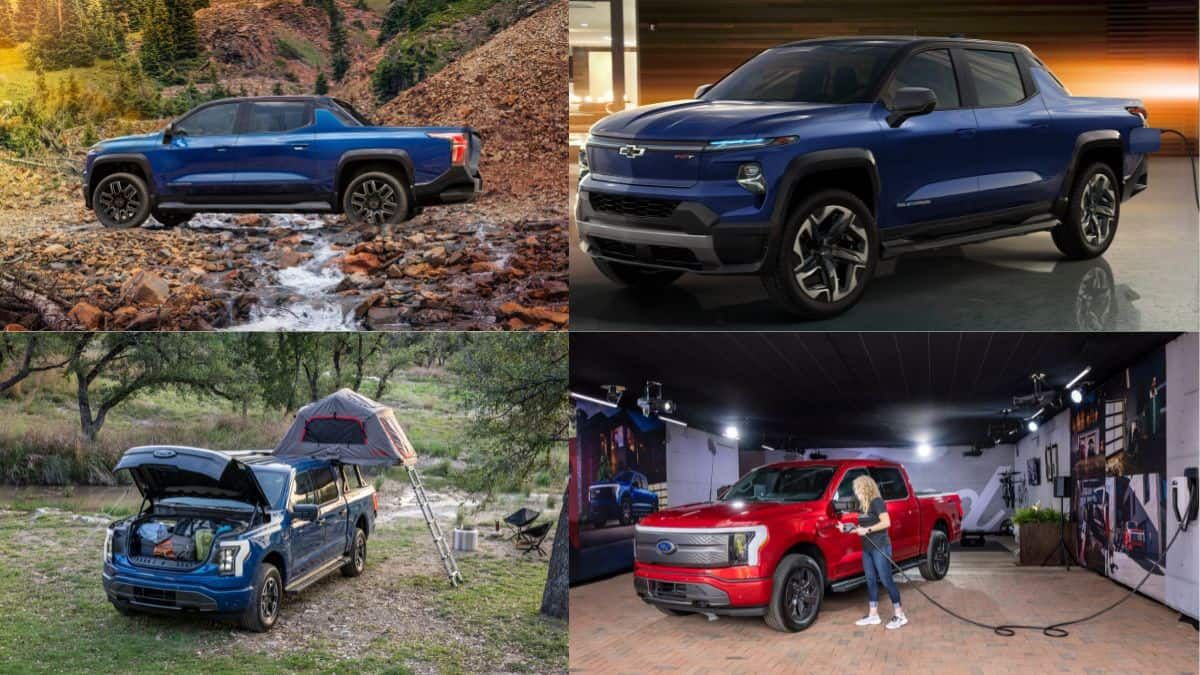I am here to tell you that that is perfectly OK, in fact it is probably a good thing. The reason is that big, heavy, full-sized pickups (which the US seems to have an insatiable appetite for) require much larger battery packs than smaller/lighter vehicles, which ultimately means the more EV pickups we make the fewer EVs we can get on the roads (and we desperately need to replace as many gas powered cars with EVs as we can since personal and commercial vehicles are the single largest source of carbon pollution in the US).
Americans love pick ups, even though, as Car and Driver points out “Market research says the majority of [pickup truck] owners aren't using pickups for towing, and some aren't even hauling anything”. Americans like pickups because when making purchasing decisions we imagine conditions, lifestyle moments, or situations that pickup trucks are very useful for like hauling large furniture or beefy equipment around, rollicking up rough dirt tracks to pristine landscapes for adventure stuff, and you know trucking loads of manure around. We tend to overbuy for our needs, in other words. Because the current generation of batteries used in EVs are only capable of storing so much energy, EV pickups tend to have extremely large and heavy batteries (1,800 pounds in the case of the Lightning). And since towing and hauling heavy loads significantly impacts the fuel efficiency of any vehicle (not just the electric kind), EV pickups that have between 200 - 300+ miles of range tend to lose a significant percentage of their range on a full charge (up to around 50% when doing the most serious work that trucks are designed to do). For this reason in particular, it makes more sense to limit the number of full-size EV pickups we are making now (we can increase them later, if needed, when batteries are 2-3x more energy dense). Instead, we should be making a lot more hybrid full-size pickups (both standard hybrid or HEV like the F-150 Hybrid, and plug-in hybrid or PHEV trucks like the forthcoming Ramcharger) because for about the same amount of battery as one full size EV pickup uses, we can make many times more hybrid pickups. Since pickup drivers tend to have high expectations of capability (whether they truly need it or not), they are perhaps the most prone to struggle with the transition to EVs; what do you mean I can’t haul 10,000 pounds 400 miles without stopping, they might ask.
Focusing what full-size EV pickup supply we do make for commercial and fleet uses first, rather than high end lifestyle/luxury trucks may not be as profitable for the automakers, but it would help meet our emissions reduction targets faster. Lower priced “work truck” variants that a contractor or parks and rec maintenance crew might use, trucks which are less likely to drive more than a full charge can provide in a single day are the best use case scenario for today’s EV pickups that tend to have insufficient range, or charging resources, for activities like long range towing. Such a tactic would also give those pickup truck loving drivers that don’t actually do as much truck stuff as they think they do some opportunity to “warm up” to the idea of electrifying their rides while we simultaneously improve the energy density of batteries to the point where we need half or less material, and weight, to achieve the same driving distance on a full charge. In the meantime, those HEV and PHEV pickups would lower those large vehicles’ emissions significantly, assuming people make the most of their battery assisted powertrain’s efficiency. We could also produce more compact and even midsize EV pickups that can do almost all the same truck stuff larger full-size pickups can do, only with battery packs that are about the same size as those used in cars and SUVs, instead.
What do you think? Are you also relieved that companies like Ford and GM are scaling back EV pickup truck ambitions? Are you enthusiastic about hybrid versions of full-size pickups and their ability to help us make good progress toward our emissions targets in the next several years? Please leave any questions or comments below.
Images courtesy of Ford and Chevy.
Justin Hart has owned and driven electric vehicles for over 15 years, including a first generation Nissan LEAF, second generation Chevy Volt, Tesla Model 3, an electric bicycle and most recently a Kia Sorento PHEV. He is also an avid SUP rider, poet, photographer and wine lover. He enjoys taking long EV and PHEV road trips to beautiful and serene places with the people he loves. Follow Justin on Torque News Kia or X for regular electric and hybrid news coverage.





